1. The importance of vitamin E for cognitive function

 Cognitive ability consists of several mental processes: memory, attention, logic, and problem-solving. Everyday activities and general quality of life depend on these processes. Cognitive decline can happen as people get older, which would provide difficulties in several spheres. Cognitive health is much influenced by nutrition, lifestyle, and genes, as well as by maintaining a sufficient intake of vital nutrients, such as vitamin E, which can aid in supporting cognitive ability and slow down aging's effects on the brain.
3. Antioxidants' Part in Brain Function
Cognitive ability consists of several mental processes: memory, attention, logic, and problem-solving. Everyday activities and general quality of life depend on these processes. Cognitive decline can happen as people get older, which would provide difficulties in several spheres. Cognitive health is much influenced by nutrition, lifestyle, and genes, as well as by maintaining a sufficient intake of vital nutrients, such as vitamin E, which can aid in supporting cognitive ability and slow down aging's effects on the brain.
3. Antioxidants' Part in Brain Function
 Compounds called antioxidants guard the body against oxidative stress brought on by free radicals. Unstable chemicals, free radicals, can harm brain neurons, among other cells. Strong antioxidant vitamin E helps to neutralize these free radicals, therefore preserving brain function. Vitamin E may protect against neurodegenerative disorders, including Alzheimer's and Parkinson's, by lowering oxidative stress, therefore lowering the chance of cognitive decline.
4. Vitamin E: Neuroprotection
Compounds called antioxidants guard the body against oxidative stress brought on by free radicals. Unstable chemicals, free radicals, can harm brain neurons, among other cells. Strong antioxidant vitamin E helps to neutralize these free radicals, therefore preserving brain function. Vitamin E may protect against neurodegenerative disorders, including Alzheimer's and Parkinson's, by lowering oxidative stress, therefore lowering the chance of cognitive decline.
4. Vitamin E: Neuroprotection
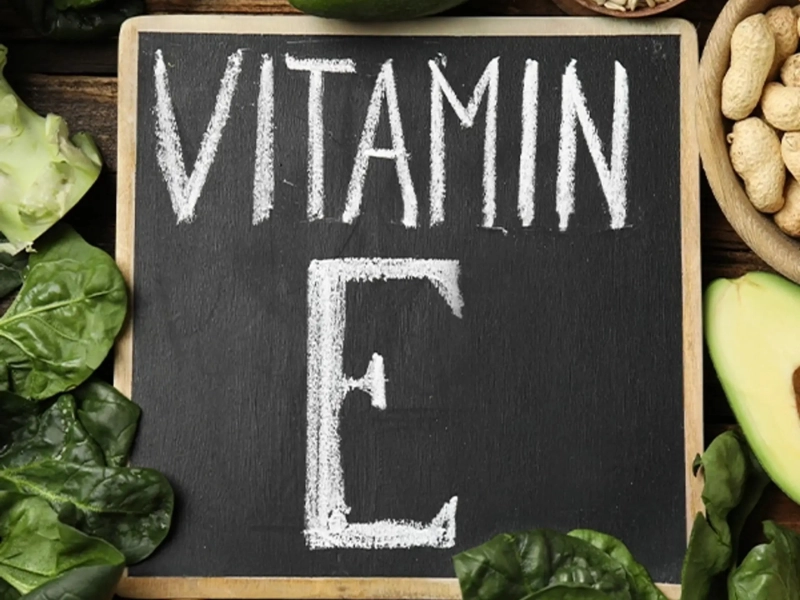 Studies of vitamin E have indicated possible neuroprotective effects. Higher dietary vitamin E levels have been linked, according to studies, to a lower risk of cognitive impairment in elderly persons. Its capacity to fight oxidative damage and brain inflammation is thought to be the basis of this protective action. Vitamin E can help to sustain cognitive ability as people age by keeping neural integrity.
5. Sources of vitamin E
Studies of vitamin E have indicated possible neuroprotective effects. Higher dietary vitamin E levels have been linked, according to studies, to a lower risk of cognitive impairment in elderly persons. Its capacity to fight oxidative damage and brain inflammation is thought to be the basis of this protective action. Vitamin E can help to sustain cognitive ability as people age by keeping neural integrity.
5. Sources of vitamin E
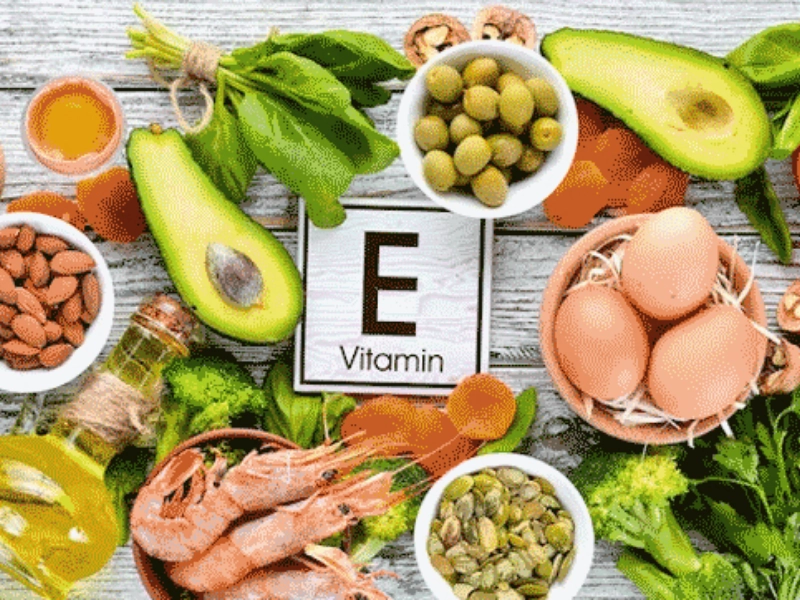 Support of brain function depends on including vitamin E into the diet. Natural sources of vitamin E include vegetable oils, almonds, seeds, and green, leafy vegetables. Especially high in this important vitamin are almonds, sunflower seeds, hazelnuts, spinach, and broccoli. Moreover, fortified foods and supplements offer another way to boost vitamin E consumption. Including a range of these foods in a balanced diet can help to guarantee sufficient levels of vitamin E for best cognitive performance.
6. Recommended daily vitamin E intake
Support of brain function depends on including vitamin E into the diet. Natural sources of vitamin E include vegetable oils, almonds, seeds, and green, leafy vegetables. Especially high in this important vitamin are almonds, sunflower seeds, hazelnuts, spinach, and broccoli. Moreover, fortified foods and supplements offer another way to boost vitamin E consumption. Including a range of these foods in a balanced diet can help to guarantee sufficient levels of vitamin E for best cognitive performance.
6. Recommended daily vitamin E intake
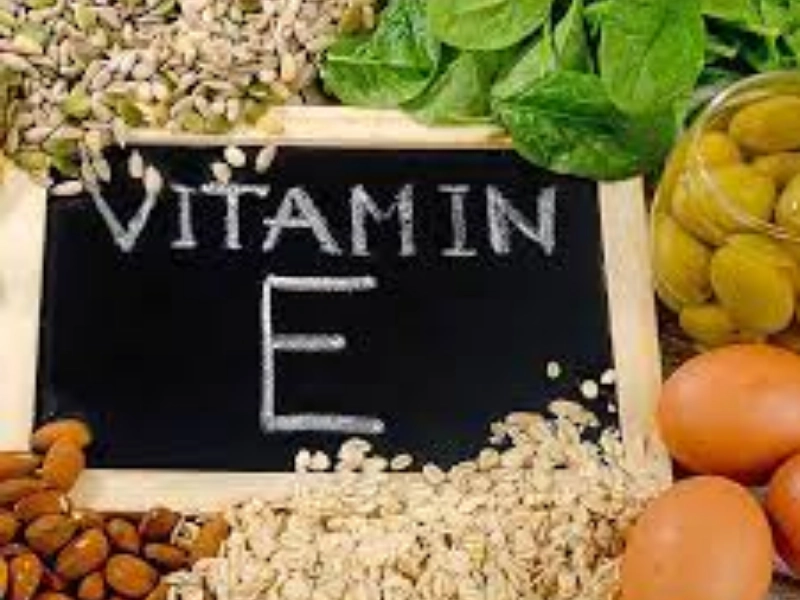 Vitamin E consumption advised daily differs depending on age and gender. Adults usually consume roughly 15 milligrams (22.4 IU) a day, the recommended dose. Individual demands, however, may vary depending on lifestyle, degree of health, and eating pattern. Before changing vitamin E intake significantly, particularly with regard to supplements, it is advisable to see a healthcare practitioner since too high levels may have negative effects.
7. The Relationship among Vitamin E and Memory
Vitamin E consumption advised daily differs depending on age and gender. Adults usually consume roughly 15 milligrams (22.4 IU) a day, the recommended dose. Individual demands, however, may vary depending on lifestyle, degree of health, and eating pattern. Before changing vitamin E intake significantly, particularly with regard to supplements, it is advisable to see a healthcare practitioner since too high levels may have negative effects.
7. The Relationship among Vitamin E and Memory
 One of the most important components of cognitive ability, memory, can be greatly changed by diet. Studies point to vitamin E maybe helping to improve memory functioning. Higher vitamin E levels have been shown in certain studies to correlate with improved memory test performance. Although further study is required to completely grasp this link, making sure one gets enough vitamin E could help memory retention and recall.
8. Vitamin E: Mood Control
One of the most important components of cognitive ability, memory, can be greatly changed by diet. Studies point to vitamin E maybe helping to improve memory functioning. Higher vitamin E levels have been shown in certain studies to correlate with improved memory test performance. Although further study is required to completely grasp this link, making sure one gets enough vitamin E could help memory retention and recall.
8. Vitamin E: Mood Control
 Cognitive ability is not limited to memory and logic; however, general brain health depends much on mood. Certain research has indicated that vitamin E might help control mood and lessen symptoms of anxiety and sadness. Vitamin E might help to enhance emotional well-being by maintaining brain health and guarding against oxidative stress. Cognitive ability and general quality of living depend on keeping a good attitude.
9. Elements of Lifestyle Affecting Cognitive Capacity
Cognitive ability is not limited to memory and logic; however, general brain health depends much on mood. Certain research has indicated that vitamin E might help control mood and lessen symptoms of anxiety and sadness. Vitamin E might help to enhance emotional well-being by maintaining brain health and guarding against oxidative stress. Cognitive ability and general quality of living depend on keeping a good attitude.
9. Elements of Lifestyle Affecting Cognitive Capacity
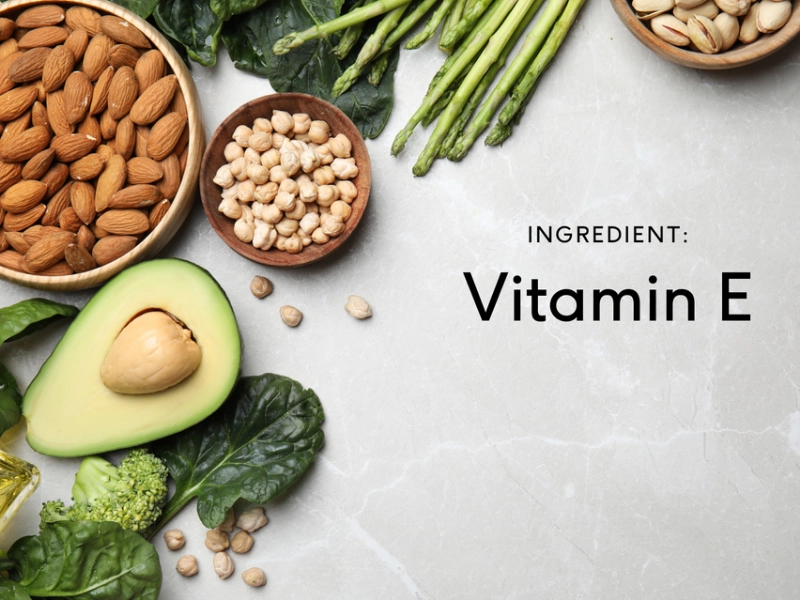 Although cognitive health depends on vitamin E, one should take into account other lifestyle choices that affect brain performance. Maintaining cognitive ability requires regular physical exercise, mental stimulation, and social interaction. Complementing the advantages of vitamin E is a balanced diet high in omega-3 fatty acids, antioxidants, and vitamins. These elements used together provide a complete strategy for preserving brain function.
10. Synopsis of Vitamin E's Part in Cognitive Enhancement
Although cognitive health depends on vitamin E, one should take into account other lifestyle choices that affect brain performance. Maintaining cognitive ability requires regular physical exercise, mental stimulation, and social interaction. Complementing the advantages of vitamin E is a balanced diet high in omega-3 fatty acids, antioxidants, and vitamins. These elements used together provide a complete strategy for preserving brain function.
10. Synopsis of Vitamin E's Part in Cognitive Enhancement
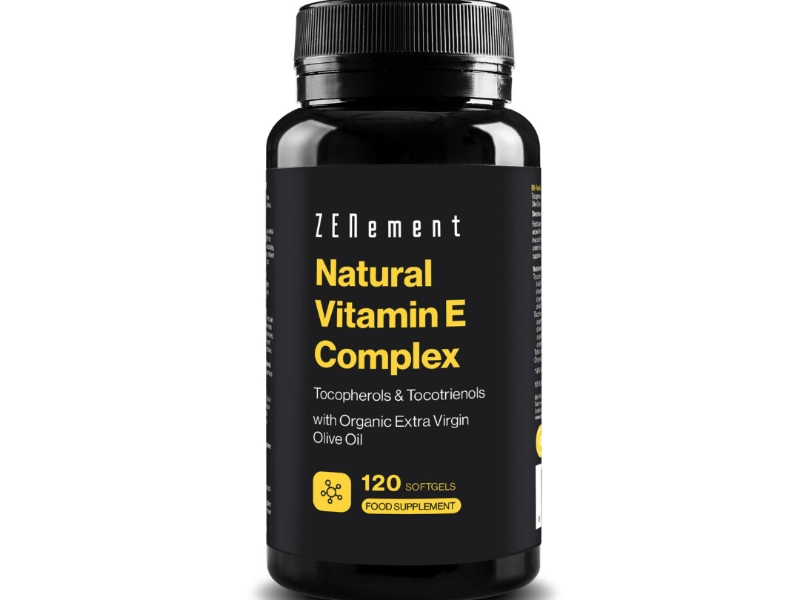 Essential for cognitive ability and general brain health, vitamin E boosts Its antioxidant qualities help shield the brain from oxidative stress and inflammation, therefore perhaps lowering the risk of cognitive decline and neurodegenerative illnesses. Those who keep a good lifestyle and include foods high in vitamin E in their diet can improve their cognitive ability and support long-term brain health. Anybody trying to maximize their mental health as they age must first understand the importance of vitamin E.
Essential for cognitive ability and general brain health, vitamin E boosts Its antioxidant qualities help shield the brain from oxidative stress and inflammation, therefore perhaps lowering the risk of cognitive decline and neurodegenerative illnesses. Those who keep a good lifestyle and include foods high in vitamin E in their diet can improve their cognitive ability and support long-term brain health. Anybody trying to maximize their mental health as they age must first understand the importance of vitamin E.